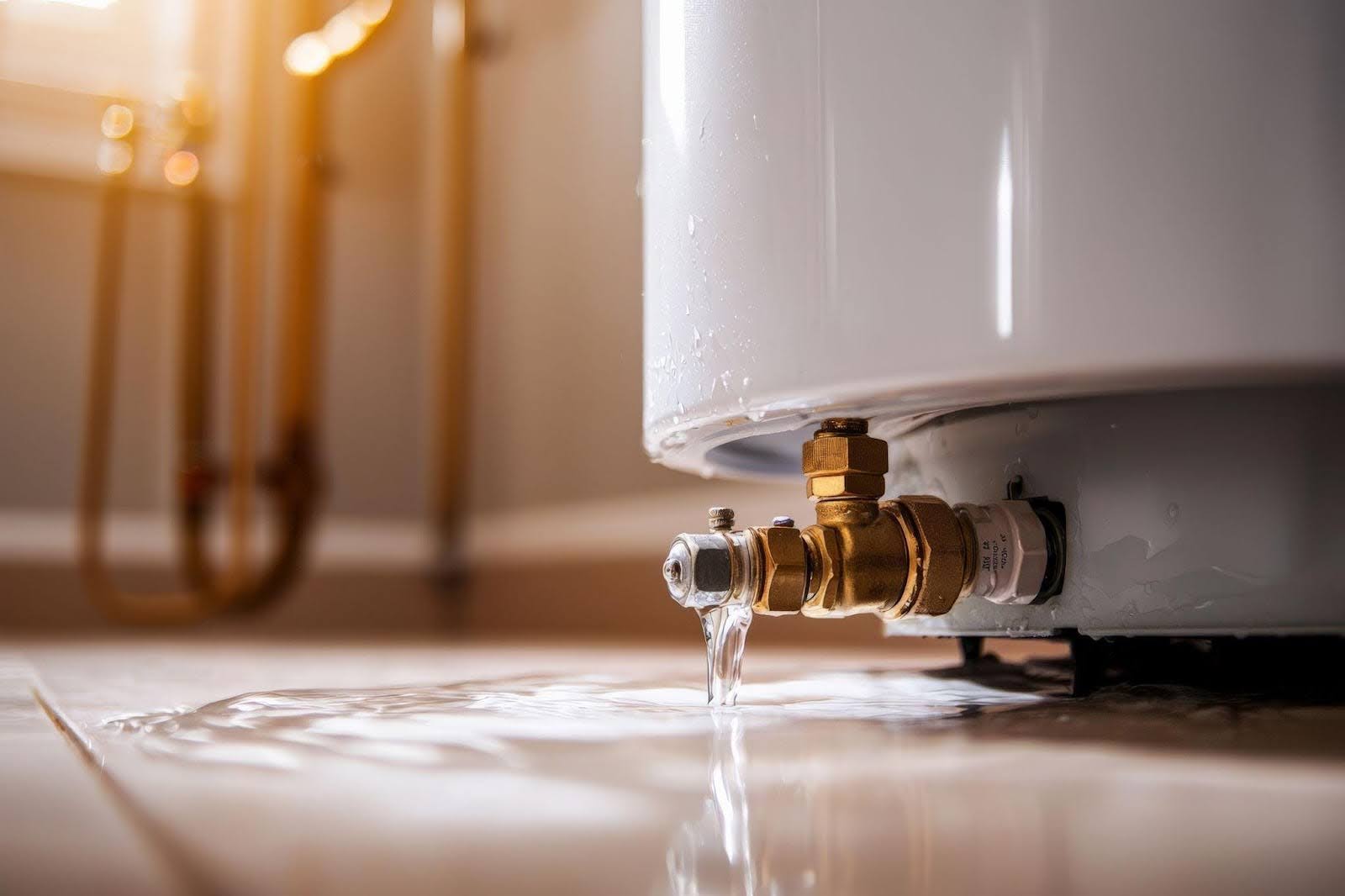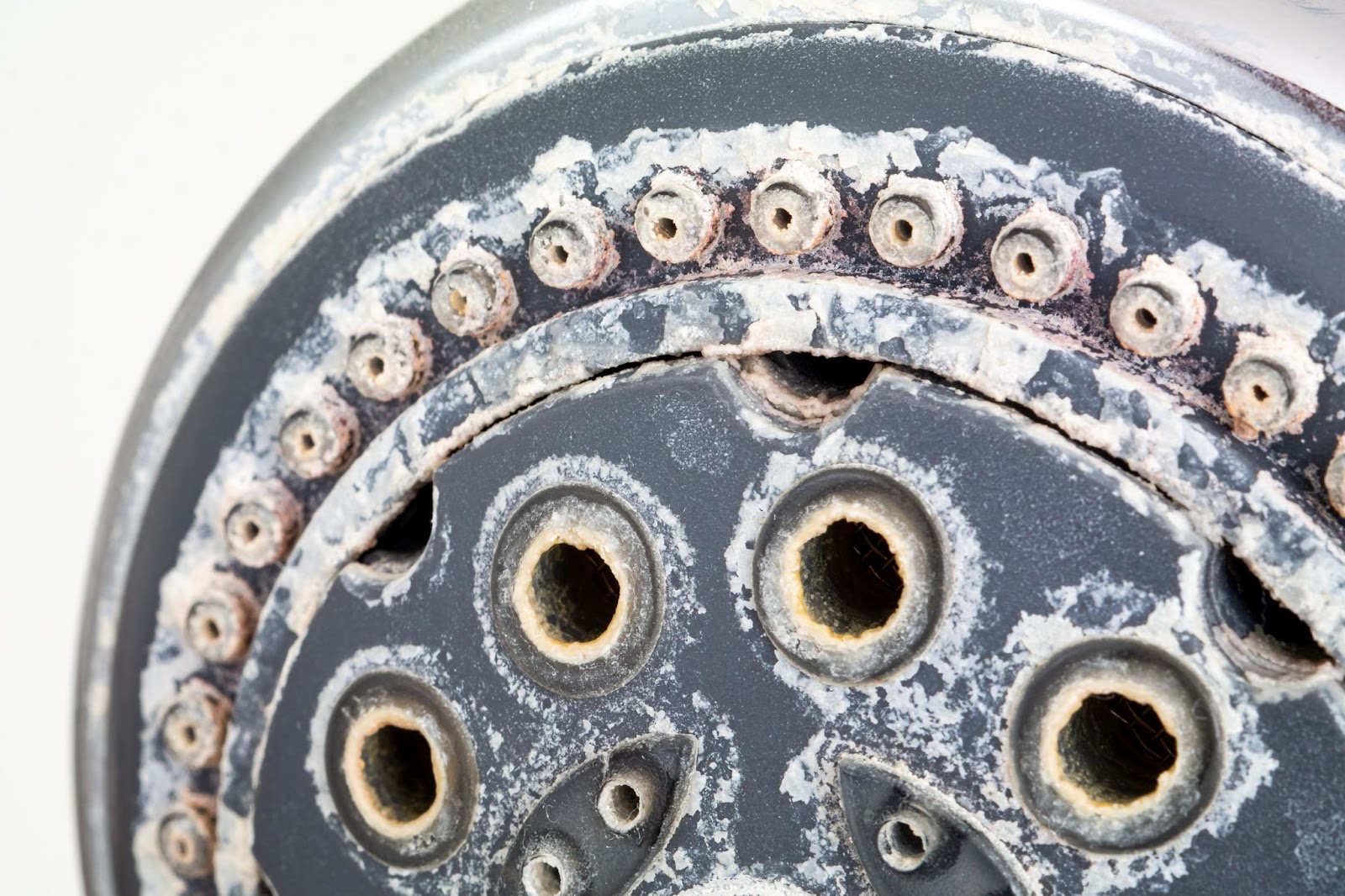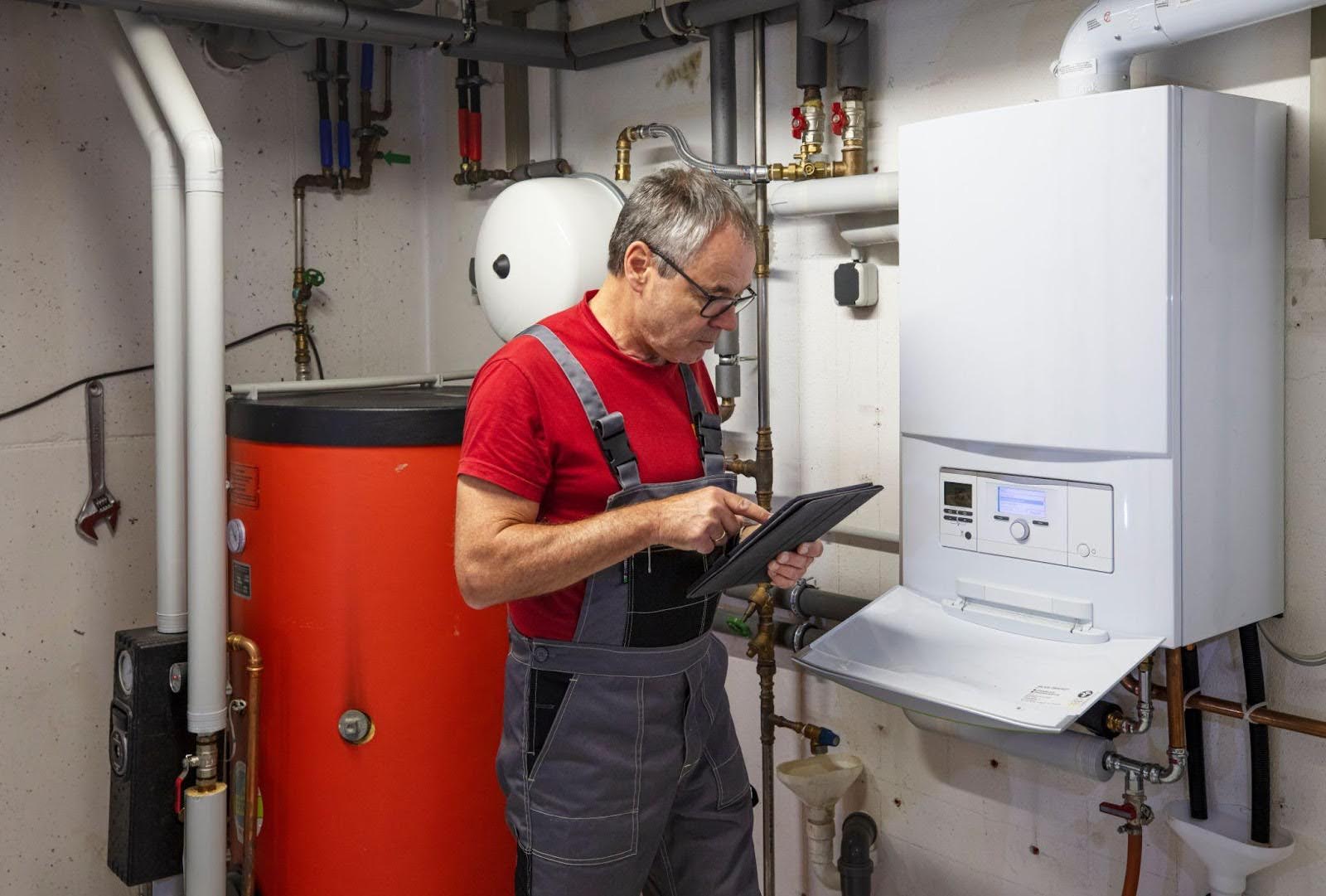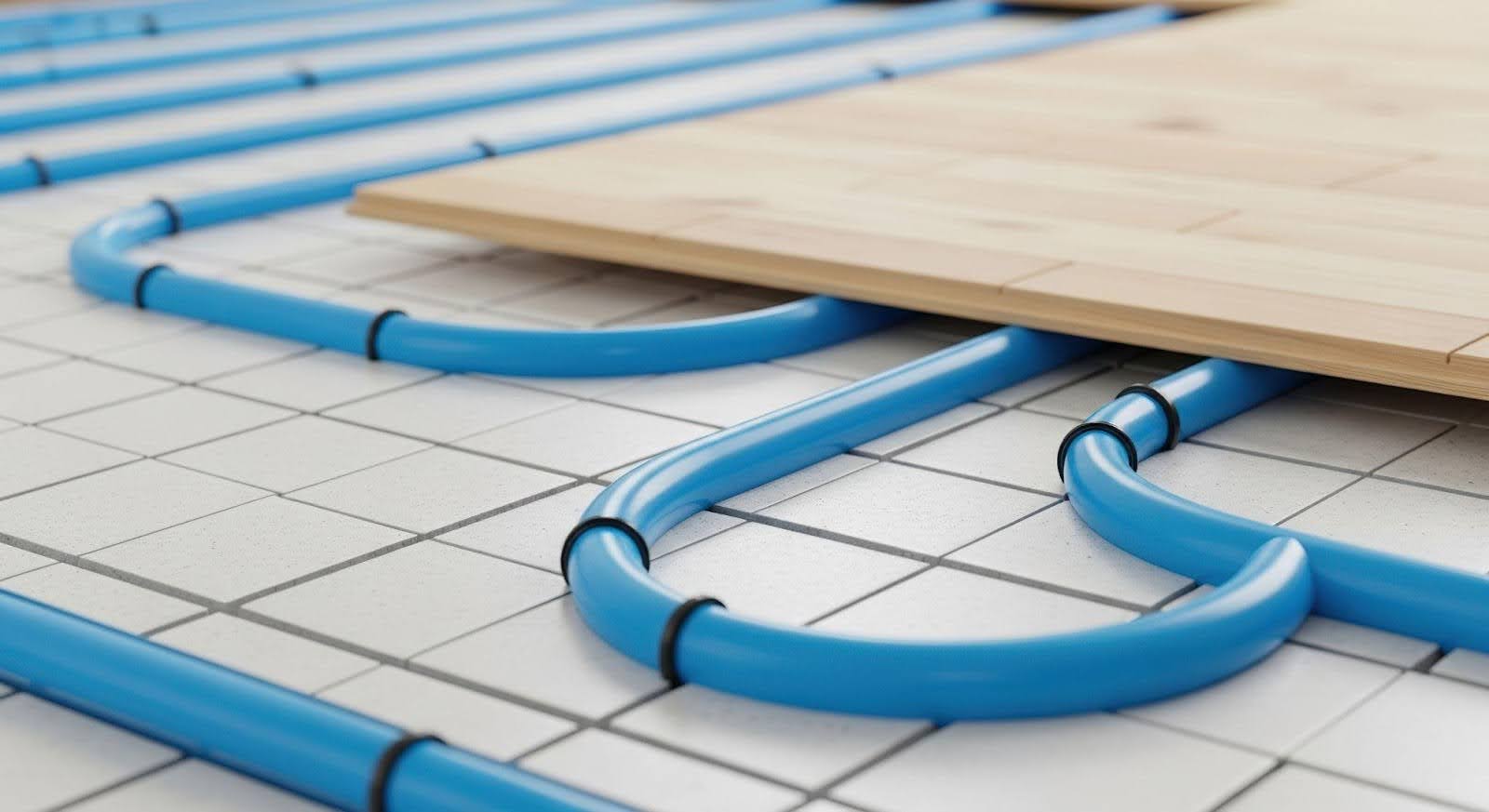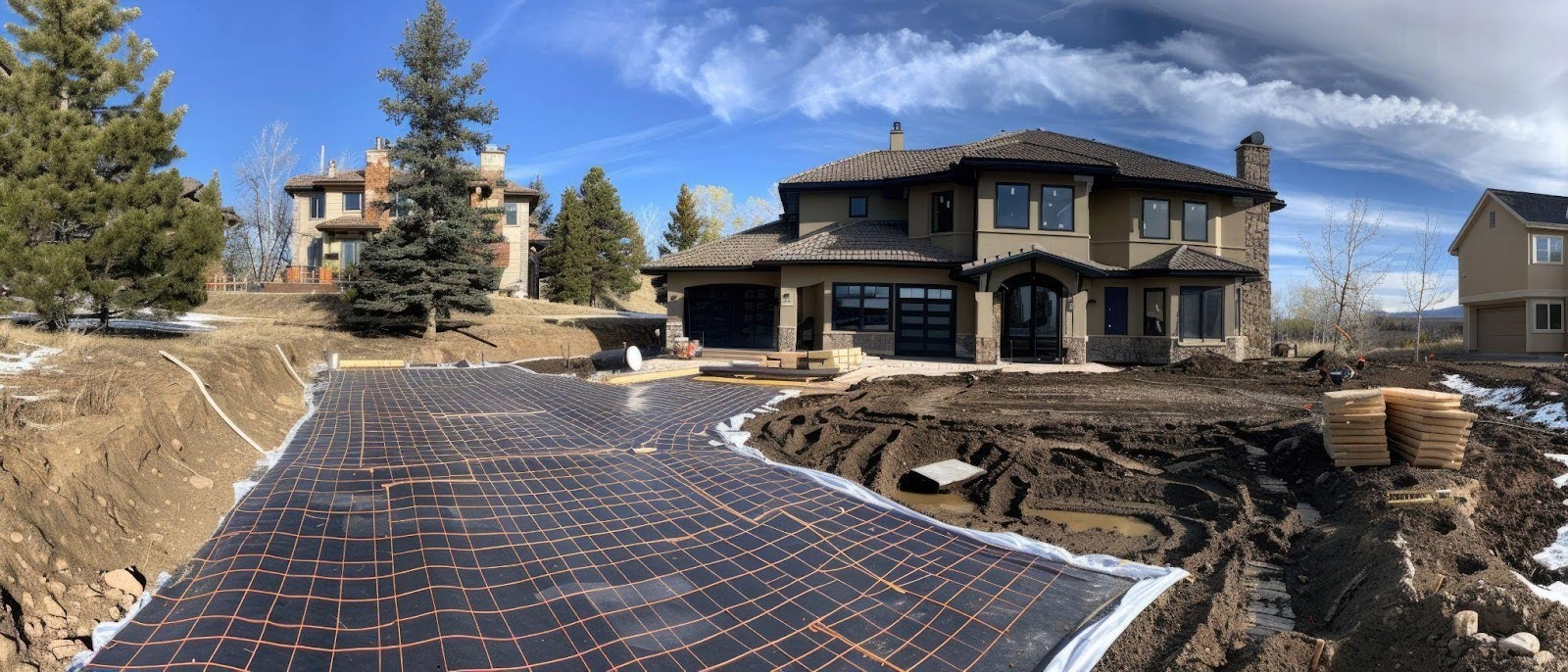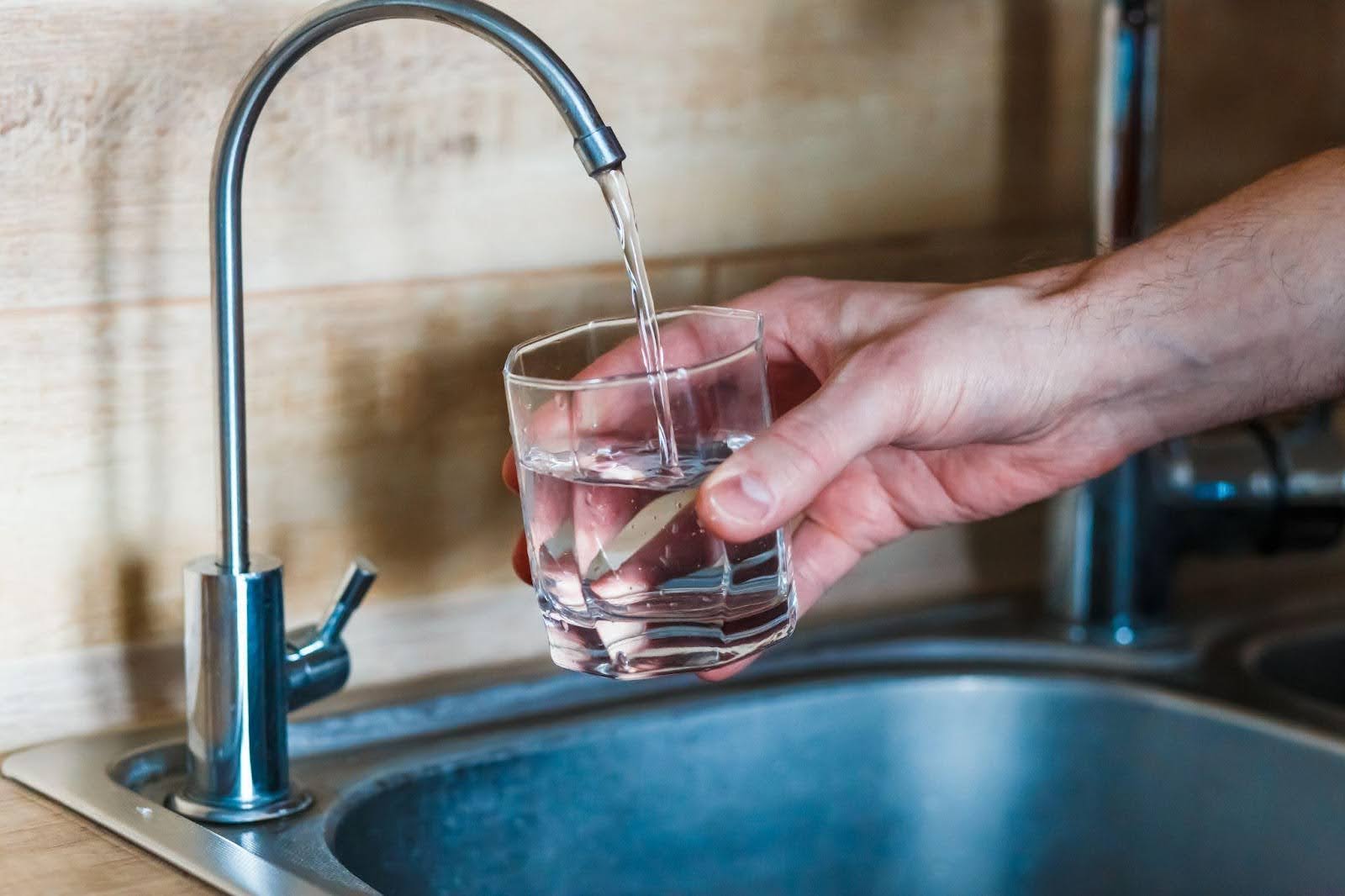Water heaters play a crucial role in our daily lives by providing hot water for showers, cooking, cleaning, and various household tasks. People often take their convenience for granted — until something goes wrong. A sudden burst easily turns a reliable appliance into a homeowner’s nightmare, flooding your space and causing extensive damage.
Understanding the risks associated with a burst water heater is essential. When a water heater fails, it releases gallons of water in minutes, leading to property damage, mold growth, and costly repairs. Additionally, water seeps into wiring or outlets, creating electrical hazards.
This blog aims to equip you with actionable steps to handle a water heater emergency effectively. From immediate actions to contacting professionals, our guide will ensure you respond quickly and minimize damage.
Common causes of water heater failures
Water heater failures often catch homeowners off guard, but understanding the common causes keeps you prepared. One primary reason for a burst water heater is age. Most traditional water heaters last about 8 to 12 years. As they age, the risk of failure increases, and parts wear down, making them more prone to issues.
Corrosion also contributes to water heater failures. Over time, rust develops on the tank, particularly in areas where the protective lining wears away. Once corrosion starts, it quickly leads to leaks, which may eventually result in a burst. Regular maintenance helps you spot corrosion early and prevent catastrophic failures.
Pressure buildup is another common culprit. As water heats, it expands, creating pressure within the tank. If the pressure relief valve malfunctions or the temperature setting is too high, the tank may not be able to handle the excess pressure, resulting in a burst.
Recognizing early warning signs prevents emergencies. Look for leaks around the base of the water heater, which may indicate corrosion or faulty seals. Unusual noises, such as popping or rumbling sounds, signal sediment buildup at the bottom of the tank. Discolored or rusty water indicates internal corrosion, while a sudden drop in hot water availability suggests impending issues.
Immediate actions to take
Step 1: Shut off the power supply
Act swiftly and cut off the power supply to your water heater. This crucial step prevents electrical hazards, especially if water begins to leak and comes into contact with electrical components. If your water heater runs on electricity, find the circuit breaker in your electrical panel and flip it to the off position.
For gas water heaters, turn the gas valve to the off position to eliminate the risk of fire or explosion.
Step 2: Turn off the water supply
Next, locate the main water valve and shut it off to stop additional water from entering the tank. This valve typically sits near the water heater itself or where the water line enters your home. By turning off the main supply, you help prevent further flooding and manage the current situation without adding more water to the mix.
Step 3: Drain the water heater
Once you’ve turned off both the power and water supply, drain the water heater to minimize flooding. Start by connecting a garden hose to the drain valve at the bottom of the tank. Run the hose to a nearby floor drain or outside to safely direct the water away from your home. Open the drain valve and allow the water to flow out.
If you have a large tank, this may take some time, so be patient. Also, open the pressure relief valve at the top of the tank to allow air to escape, facilitating faster drainage.
Assessing the damage
After you manage the immediate situation, assess the damage caused by the burst water heater. Start by inspecting the area around the water heater for signs of flooding, water stains, or structural issues. Check the floor, walls, and any nearby furniture for water exposure.
If you notice standing water or damage to surfaces, document everything for your insurance claim. Take photos and note the extent of the damage for your records.
Identify affected areas in the home
Next, identify all areas of your home impacted by the water. Walk through each room and look for damp spots, wet carpets, and signs of mold or mildew.
Pay special attention to floors and walls, as water seeps into places you might not initially notice. Check the basement or lower levels, as water tends to flow downward. If you see warped wood or mold growth, act quickly to address those areas.
Determine if it’s safe to remain in the home
Finally, evaluate whether you can safely remain in your home. If the water reaches electrical outlets, appliances, or wiring, evacuate immediately and contact emergency services.
In cases of extensive flooding, structural damage, or potential contamination, consider seeking temporary shelter until a professional assesses the situation. Always prioritize your safety and that of your family. If you have any doubts, err on the side of caution and seek help from local authorities or professionals.
Contacting professionals
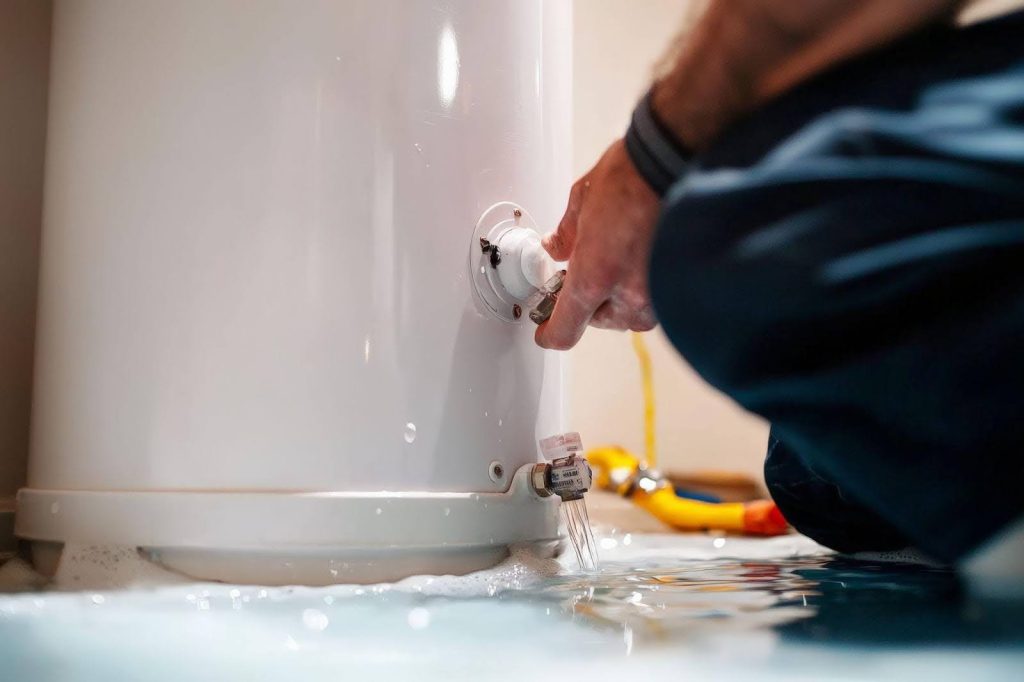
When your water heater bursts, act quickly and contact a licensed plumber. These professionals have the expertise to assess the situation accurately and implement effective repairs. A licensed plumber ensures compliance with local codes and safety standards, minimizing the risk of future issues.
Delaying this call could exacerbate the damage and lead to more costly repairs. Swift action helps prevent further water damage and addresses potential safety hazards.
Provide essential information
When you reach out to the plumber, give them critical information about the situation. Describe the nature of the problem, including when the water heater burst and any visible damage. Mention whether you have already shut off the power and water supply, as this information helps the plumber prepare for their arrival.
If you notice specific sounds, odors, or other unusual signs, share those details too. Providing a clear picture of the situation enables the plumber to arrive equipped with the right tools and knowledge to address the issue efficiently.
Contact your insurance company
Don’t forget to notify your insurance company as soon as possible. Water damage claims are time-sensitive, and your insurer may require documentation of the incident. Report the situation, share the steps you took to mitigate further damage and provide any relevant photos.
Your insurance agent will guide you through the claims process and let you know what coverage you have for repairs and damages. By involving your insurance company early, you streamline the process and secure the financial support you need to recover from the incident.
Taking these steps ensures a smooth response to your water heater emergency, protecting your home and finances.
Water heater solutions and more from Salisbury Plumbing
If you face a water heater emergency, remember that professional help is simply a call away. At Salisbury Plumbing, our experienced team stands ready to assist you with any plumbing issues, ensuring a swift resolution and peace of mind.
Contact Salisbury Plumbing for expert support and guidance during this challenging time.
daftar situs gacor situs slot slot online situs slot togel resmi situs toto situs toto monperatoto kampungbet keluaran hk situs slot toto slot slot gacor kampungbet data macau rtp slot situs toto kampungbet situs hk bento4d slot terpercaya toto slot toto slot toto slot toto slot bento4d toto slot slot thailand situs slot gacor toto togel toto slot slot online situs toto situs togel bento4d login toto slot situs gacor bento4d togel toto slot toto slot toto togel situs toto data macau bento4d slot gacor hari ini slot gacor

